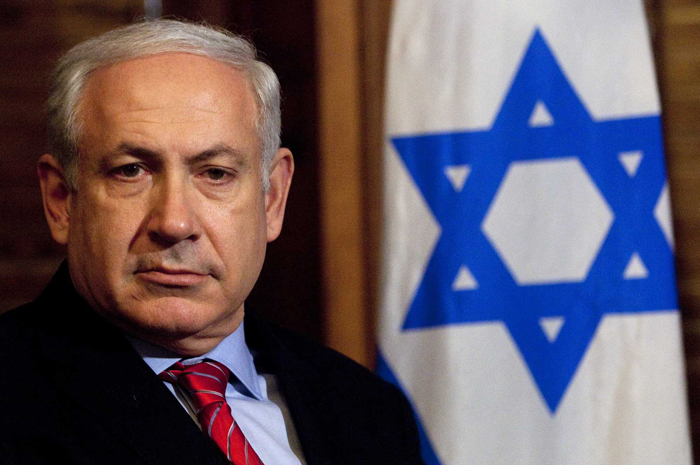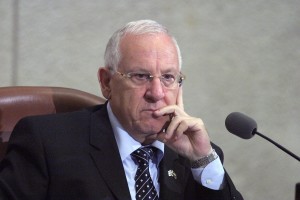by Marsha B. Cohen
For most Israeli politicians, the news of the election of moderate cleric Hassan Rouhani as president of Iran, is not good. That it is considered good news by anyone else makes it that much worse.
In Poland last Wednesday, two days before Iranians went to the polls, Israeli Prime Minister Netanyahu declared that the results would bring about no meaningful change in Iran. Hours before reports of the election’s outcome began to be announced, Israeli Defense Minister Moshe Yaalon told the Washington Institute for Near East Policy (WINEP), a pro-Israel think tank, that Iran’s Supreme Leader, Ali Khamenei, would decide who the next Iranian president would be. The imminent Iranian election would change nothing.
As news of Rouhani’s garnering more than half the votes cast in Iran began to emerge, Israel’s Foreign Ministry spokesman, Yigal Palmor, echoed the widespread view that it is Khamenei who makes all the decisions concerning the Iranian nuclear program, not the Iranian president. “After the elections, Iran will continue to be judged by its actions, in the nuclear sphere as well as on the issue of terror,” Palmor said in a statement.” Iran must abide by the demands of the international community to stop its nuclear program and cease the dissemination of terror throughout the world.”
In a cabinet meeting on Sunday morning, Netanyahu derided not only the possible impact of a Rouhani-presidency on Iran’s policies, but also whether Rouhani even deserved to be considered a moderate since Khamenei had allowed him to run:
“Let us not delude ourselves,” Netanyahu said. “The international community must not become caught up in wishes and be tempted to relax the pressure on Iran to stop its nuclear program. It must be remembered that the Iranian ruler, at the outset, disqualified candidates who did not fit his extremist outlook and from among those whose candidacies he allowed was elected the candidate who was seen as less identified with the regime, who still defines the State of Israel [in an address last year] as ‘the great Zionist Satan.’”
Referring to the unexpected election of Mohammed Khatami as Iran’s president in 1997, the Israeli Prime Minister reminded his cabinet that “Fifteen years ago, the election of another president, also considered a moderate by the West, led to no change in these aggressive policies.”
Perhaps Netanyahu should be reminded that in 1992, he claimed Iran was “3 to 5 years” from having a nuclear weapon. That same year, Israeli Foreign Minister Shimon Peres (Israel’s current president) told French TV that Iran would have a nuclear warhead by 1999. This contention, shared by Netanyahu’s political rival, Yitzhak Rabin and echoed here by the Israel lobby, provided much of the impetus to push harder for the anti-Iran sanctions that were a major factor in constraining the ability of the last reformist president, Mohammad Khatami, to improve the economy and gain political capital against regime hard-liners.
In an interview with AP and Reuters, Peres made the opposite argument, praising the election results as a blow to Iran’s supreme leader, Ayatollah Ali Khamenei, “who was sure that the people would vote according to his decision.” According to Peres, Rouhani will now have to be judged by his actions, rather than his words.
(Now what would happen if the U.S. were to judge Israeli leaders by their actions rather than their words, with regard to resolving the Israel-Palestinian conflict or coming clean about Israel’s nuclear weapons program?)
Knesset Foreign Relations Chair Avigdor Lieberman of the hardline Israel is Our Home party, barred from assuming the post of Foreign Minister until the pending corruption charges against him are resolved, sized up Iran’s president-elect as being “not more moderate, but more sophisticated” than his predecessor. “We have not heard from [Rouhani] any announcements that he plans to stop the nuclear program.”
Minister of International Relations Yuval Steinitz, whose ministerial duties include “Israel’s intelligence efforts on Iran,” told Army Radio on Sunday morning that “the results are a credit to the Iranian people,” but expressed doubts as to whether Supreme Leader Khamenei, who “actually manages foreign affairs, national security and Iran’s nuclear program,” would alter Iran’s “path and behavior.” Steinitz asserted that the election results would have no effect on Iran’s nuclear progress, which he claimed is ever-closer to crossing the nuclear “red line.” Were any changes in to occur, he opined they would come about solely as a consequence of “increased pressure” by the international community. Steinitz therefore insisted that international sanctions against Iran “must continue, regardless of the desire of the Iranian people for progress.”
Justice Minister Tzipi Livni — praised by J-Street last year when she resigned from the Knesset for defining “the ideal of public service in Israel, pursuing her vision of the best interests of Israel with passion, dignity and integrity,” but who immediately jockeyed for and won a cabinet position in the right-wing Netanyahu government elected in January — also told Army Radio that Rouhani’s election would test the West’s determination to keep Iran from acquiring nuclear weapons. While Rouhani might seem like a more moderate face for Iranians, Livni was in agreement with her Likud colleagues that it would be “wise” to continue pressuring Iran. “The test will be that of action,” Livni said, parroting the official Israel position that Iran’s new president should be judged by actions instead of words.
MK Zahava Gal-on of Israel’s pro-peace and progressive Meretz party, which is in opposition to Netanyahu’s government, issued a sardonic statement of condolence to Israel’s political leadership on the departure of Mahmoud Ahmadinejad, who for the past eight years has provided a treasure trove of anti-Israel invective that Netanyahu and other Israeli leaders have been able to quote when making their case that Iran is an imminent threat to Israel:
I extend my sympathy to the Israeli government that, with heavy heart and head hung low, must bid farewell to Ahmadinejad, who served as propaganda card and as an excellent source of excuses to avoid dealing with Israel’s real problems,” she said in a statement.
Where will the prime minister turn to now, when someone asks him about the Palestinian conflict? What about the out-of-control budget deficit for which he was responsible?… What about the racism that exists within Israeli society?… What will he do?”
I fear that the election of the moderate Rouhani is not just a blow to the extremists in Tehran, but also to the extremist leadership in Israel, which will now have to replace intimidation with actions.”
Gal-On’s sarcasm is closer to reality than it might sound. After Ahmadinejad was declared the winner of the contentious 2009 runoff presidential election, despite charges that his opponent, Mir Hossein Mousavi, had received more votes, the pro-settler, nationalist news site Arutz Sheva included some quotes reflecting the attitudes of many Israeli politicians and pundits about the 2009 victory of the outgoing Iranian president who Israeli leaders have delighted in comparing to Haman and Hitler, among them:
- Mossad director Meir Dagan told the Knesset’s Foreign Affairs and Defense Committee that “if the reformist candidate Mousavi had won, Israel would have had a more serious problem because it would need to explain to the world the danger of the Iranian threat.”
- Ephraim Inbar, director of the Begin Sadat Center at Bar-Ilan University, explained to CBS News, “If we have Ahmadinejad, we know where we stand. If we have Mousavi we have a serpent with a nice image.”
- Political commentator Ron Ben Yishai declared Ahmadinejad “a diplomatic asset for the West in general and for Israel in particular. His Shi’ite fanaticism and Holocaust denial have frightened Arab and Western countries and assisted in creation of a global anti-Iranian front.”
So it’s not surprising that, as the results of the 2013 Iranian election became known on Saturday, Deputy Defense Minister Gilad Erdan expressed concern that Rouhani’s reputation as a centrist and the support he received from Iran’s reformists might tempt the West to give Iran “more leeway in diplomatic contacts over its rogue nuclear drive,” agreeing to more talks, and then more talks.
Regardless of the outcome of any Iranian election offering the possibility of change — admittedly not the prospect or an outright promise — Israeli politicos will be displeased, and for the wrong reasons. Expect to hear more from them in the days and weeks ahead in the media, and from the Israel Lobby in the United States.





